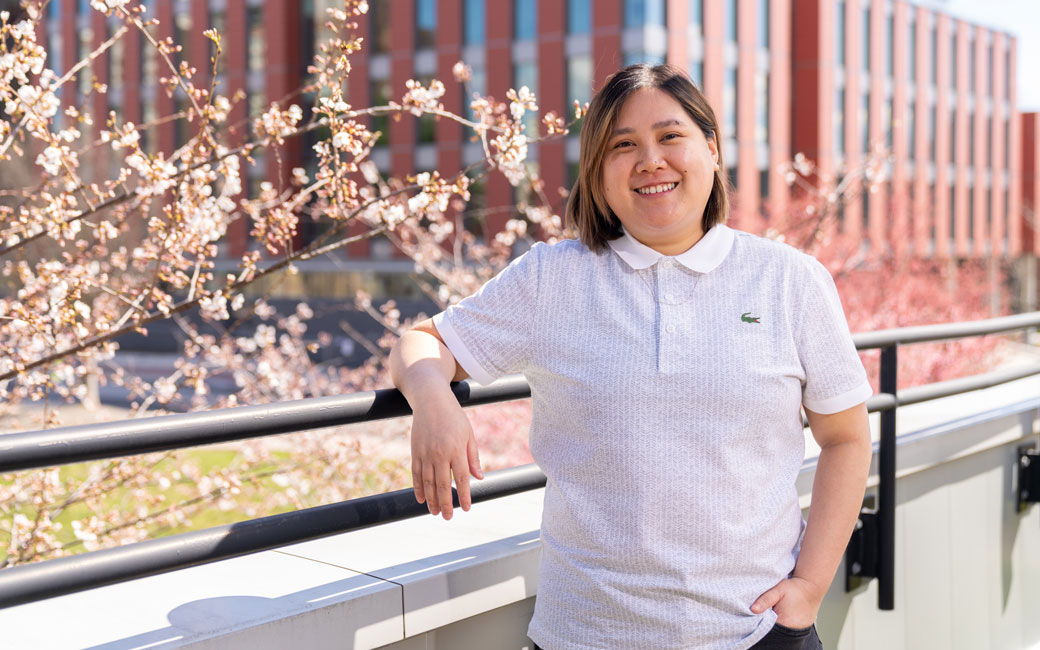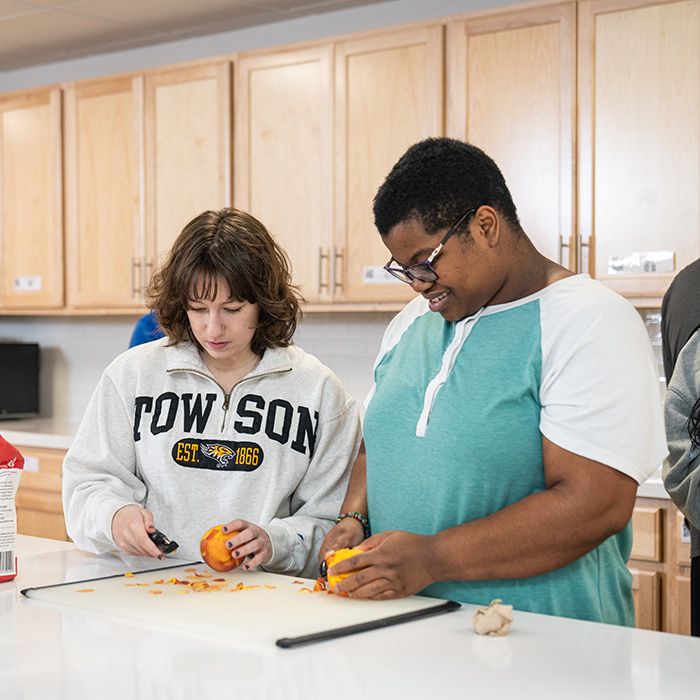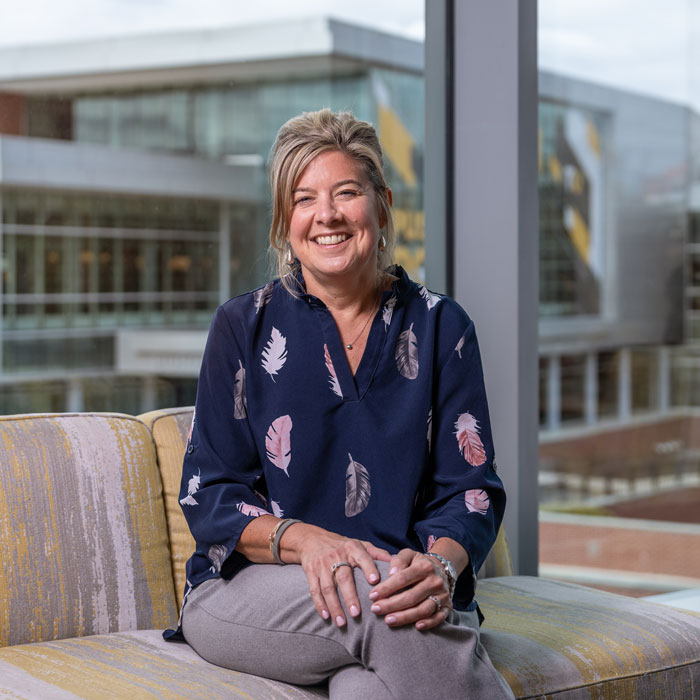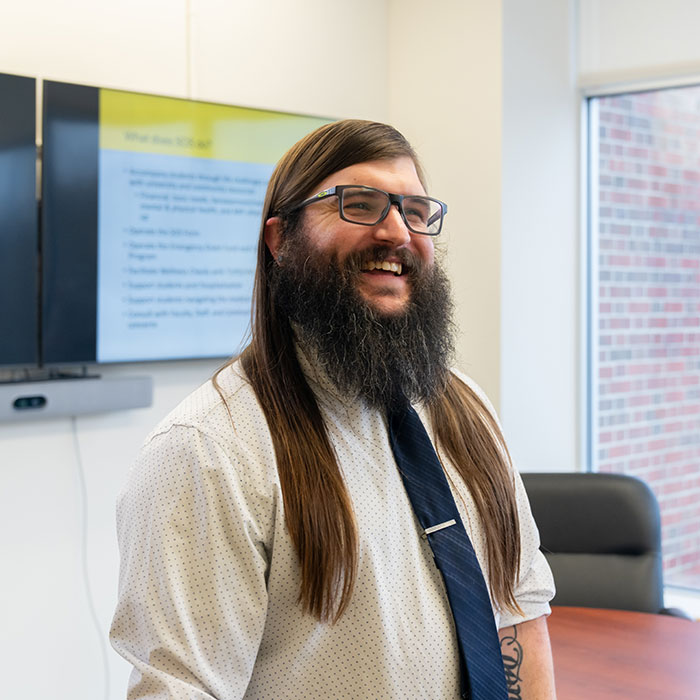Celebrating Tigers with Disabilities
Build connections, access resources and support services, and celebrate a resilient community.
Dr. Chris Truong shares the magic of the Explore Your Neuroverse program and the neurodiverse population at TU

Chris Truong and their team are helping students, faculty and staff to embrace the power of neurodiversity with the Explore Your Neuroverse program.
Originally from California, Truong, TU’s coordinator of neurodiversity-affirming services and staff psychologist, began their journey in higher education studying neuroscience. Seeing the value in connecting neuroscience and psychology led them to pursue a Master of Health Science at Johns Hopkins University Bloomberg School of Public Health and then a doctor of clinical psychology at University of Maryland Loyola.
It was through this unexpected, winding road of career exploration that Truong found a love for working with people who were neurodivergent. After working at the Autism Spectrum Center at Mt. Washington Pediatric Hospital, they matched as an intern with TU’s Counseling Center through the APPIC Internship Matching Program where they provided neurodiversity-affirming care to students on campus.
As a strongly values-based person, Truong tries to infuse their values into work in any way possible—namely, neurodiversity-affirming care that seeks to empower students to bring their most authentic selves to the table.
Truong works with a passionate team in the Counseling Center to create engaging and inclusive programming for students who identify as neurodivergent but also for neurotypical students looking to build a community.
“ Neurodiversity is so vast and interconnected, kind of like a universe. Our community is a neurodiverse constellation on campus. ”
The Explore Your Neuroverse (EYN) program seeks to do just that. Through EYN, Truong works with colleagues Kathleen DiMattia and Amber Walser and a student committee to address the needs of students. Their programming efforts include amplifying neuro inclusive student groups and the education of staff and faculty through neuro-affirming classroom workshops and outreach across campus.
EYN provides students with access to existing community and therapy groups within the Counseling Center like Insight Check—which offers students the opportunity to work on interpersonal goals through Dungeons and Dragons gameplay—and Executive Function Junction, a skills workshop space open to anyone struggling with procrastination and organization who would benefit from activities like body doubling – the practice of completing challenging tasks or work in the company of others.
Beyond skills workshops, the programming offers workshops in self-exploration, including learning about neurodivergent love languages, masking and unmasking and increasing/decreasing stimulation.
Overall, the student-facing outlets enable students to explore their own neurodiversity in a safe way, gain confidence through practice and apply their knowledge outside of these groups.
Truong relies on the feedback from the Neurodiversity Resource Committee, a group of students who are the ears on the ground for student and campus feedback. The committee learns and shares what students need and desire out of neurodiversity programming with Truong and their team to help make important programming decisions. Truong insists that the committee's feedback is essential to their team’s decision-making progress.
When it comes to creating a more inclusive community at TU, Truong finds it most important for individuals to look inward and question their own assumptions.
“It is most important to think about our own mindsets,” Truong says, “Are we holding stigmas or assumptions about others? Are our expectations based on ableism, and are we judging or shaming someone for something they can’t control?”
By asking these hard questions, Truong believes that as a collective the TU community can build upon inclusivity and flexibility not just socially, but in the classroom and everyday life as well.
“ This population of students knows what they want. They know how to advocate for themselves, and I respect that. I want to be responsive to the wants and needs of this community. ”
There are students without formal diagnoses and others who may be early in their journey to discovering their neurodivergence who would benefit from classrooms and social environments that practice flexibility and informal accommodations. To them, it is important for professors and staff to explore how they can adapt to help increase support and accessibility in these intersectional environments, regardless of whether students have a known or formal diagnosis
When it comes to programming and working with students, Truong and their team always consider the future. For students who identify as neurodivergent and as having a disability, Truong hopes there is more acceptance, openness and attentiveness to accommodations in the near future.
The most rewarding part of their role, Truong says, is seeing students blossom and grow through programming activities.
“I can tell when a student is starting to feel more comfortable with themselves and being more accepting of who they are and what they need. And finding others who also embrace them,” they say. “Anytime I see that happen it is a reinforcement that I need to do more to help people organically connect in that way.”

Neurotypical and neurodiverse TU students and autistic adults can find community, resources and education at the Hussman Center for Adults with Autism.
More about the Hussman Center
Director of Accessibility and Disability Services Robyn McCray talks the importance of inclusion.
Meet Robyn McCray
Student Outreach and Support helps students overcome challenges by creating connections.
More about SOS